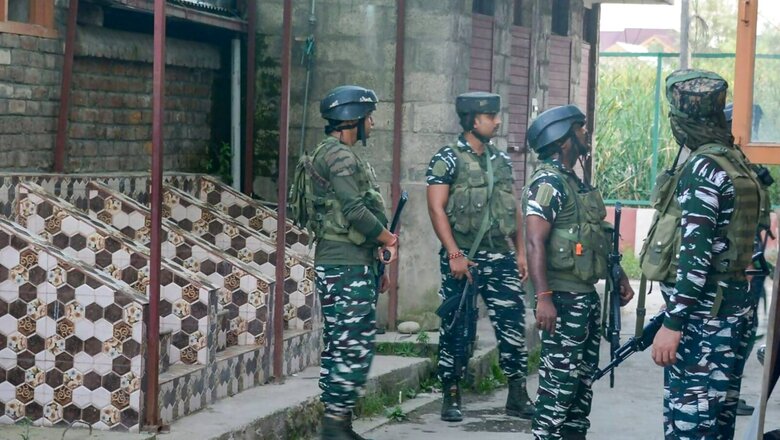
views
While the ministry of home affairs’ task force for suicides and fratricides has finalised a draft report, a Central Reserve Police Force (CRPF) jawan took his own life at the residence of the director of Intelligence Bureau (IB) at around 4.40 pm on Friday with his service AK-47. What triggered the incident is being investigated.
Sources said that the personnel was 50 years old and was deployed along with other personnel to guard IB director Tapan Deka’s residence.
The IB chief is the senior-most four-star-rank IPS officer of the country.
The deceased has been identified as Rajesh Kumar, assistant sub-inspector of CRPF, native of Madhya Pradesh, an official confirmed to News18.
He fired an AK-47 to his head. After hearing the shot, other personnel also rushed towards the spot and found the ASI in a pool of blood.
The recommendations
The task force appointed by the ministry of home affairs has been told and recommended that there should be strict prohibition on use of abusive language, bullying and humiliation at the workplace, and that a transparent transfer policy is required to prevent suicides in the forces.
News18 had first written about the report which was prepared by the task force on suicides and fratricides.
Paramilitary forces in their recommendations have said that poor infrastructure, long separation from families/forced bachelorship are some reasons that trigger suicides.
The recommendations of all paramilitary forces and Assam Rifles are part of the draft report compiled after analysing cases.
While suggesting preventive measures, the forces’ recommendations say, “Availability of basic infrastructure for soldiers like barracks, bathing points, toilets, recreation/common halls, sports facilities. While dealing with fear of failures on duty, the role of leaders is of paramount importance. Leaders may be trained to identify such issues and take remedial corrective measures rather than focusing mainly on penal actions. Prolonged deployment in high-risk areas leads to fatigue, diseases and mental disorders. Regular exercise, transparent transfer policy and soft posting mechanism and robust medical system are some of the solutions.”
The forces have also recommended that long separation from families/forced bachelorship is very common in each rank and forces must have a leave management system that needs drastic reform, and this can only be possible if vacancies are filled up in time. “Screening of health issues of men while deployed in inhospitable and adverse climatic conditions, at regular intervals is very much essential in early diagnosis of psychotic disorders,” the report says.
Forces have also said that rotation of duties at regular intervals, regular conduct of physical activities, yoga and meditation, games, chaupal, interactions, and sammelans are beneficial for keeping soldiers away from isolation feelings.
Regular interaction (formal and informal) of junior/senior leaders with their troops, and troops being permitted to keep their families at their places of duty, if feasible, are a few solutions provided by forces to the task force.
“Strict prohibition on use of abusive language, bullying and humiliation at the workplace. Commanders at every level must ensure high level of integrity. Transparent transfer policy to boost confidence in effective planning of career and family issues,” the report says.
‘Posting, promotion, and pension’
In the report, BPRD has said that slow promotions, delay in postings, continuous postings in conflict theaters, etc, are reasons of fratricides and suicides.
The research wing of the home ministry has said that three ‘P’s, posting, promotion, and pension, are triggering such incidents.
Other issues are job challenges, working conditions, leadership, and welfare matters.
Read all the Latest India News here




















Comments
0 comment